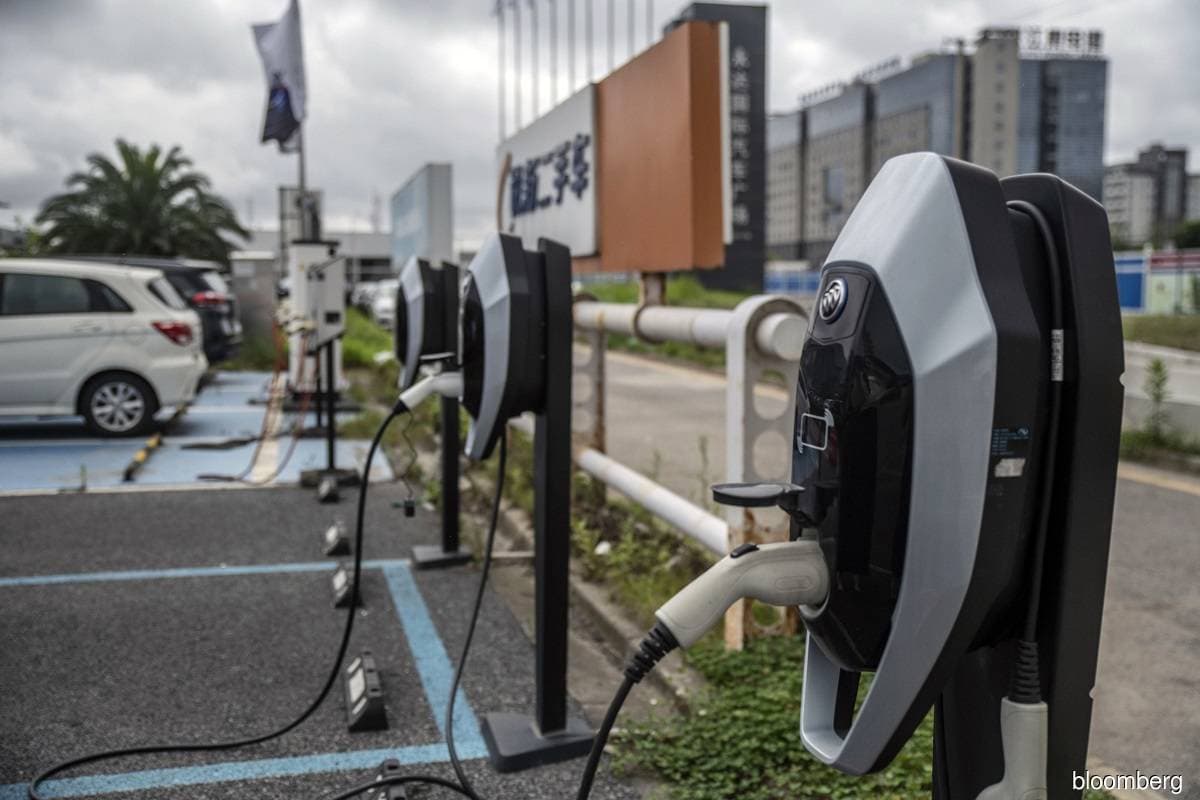
KUALA LUMPUR (Nov 9): Electric vehicle (EV) sales are projected to surpass seven million cars globally in 2021, more than doubling 2020 sales of 3.2 million units.
According to Norway-based independent energy research and business intelligence company Rystad Energy, EVs, including plug-in hybrid electric vehicles (PHEVs) and battery electric vehicles (BEVs), will account for around one in every 10 new cars purchased, with a global market share of 10.3%, up from 5.3% in 2020.
It said this market share will be a new global record, marking the first time EV sales have accounted for a double-digit share of total vehicle sales, which are projected to be around 69 million in 2021.
In a statement on Monday (Nov 8), Rystad said it anticipates a high-adoption scenario of a 72% EV share globally by 2030 and close to 100% by 2040, consistent with a 1.6°C global warming scenario.
Of the seven million EV sales in 2021, 68% are expected to be BEV sales, with the remaining 32% coming from PHEVs.
It said sales of EVs continued their upward trajectory in September, with nearly 700,000 units sold.
Rystad said the top 10 countries in terms of EV sales accounted for a dominant 83% of the global volume.
September marked the second consecutive month in which the market share of EVs among vehicle sales crossed 10%.
With this, total EV sales reached around 4.72 million vehicles through the first three quarters of 2021, it said.
Rystad said the rapid rate of EV sales growth worldwide was in large part due to widespread adoption in China.
It said more than 340,000 new EVs were sold in China in September 2021 alone, accounting for around half of global sales.
The EV market share in China reached 19.5% in September.
Last year, authorities in Beijing announced an action plan targeting a 40% EV share of all vehicle sales, doubling an earlier announced target of 20% by 2025.
Rystad energy transition analyst Abhishek Murali said the fourth quarter of this year is set to see a huge increase in the number of EVs sold, mirroring trends in 2019 and 2020, as electric car makers like Tesla traditionally tend to push out maximum deliveries at the end of the year.
“In addition, buyers are expected to try to take advantage of government incentives before they start being phased out as a result of strong market adoption of EVs,” he said.
Murali said that although China is driving the global numbers, several other countries are seeing high EV adoption rates.
“Norway, for example, continued to push towards its 100% zero-emission vehicle target, with the EV market share crossing 90% of all vehicles sold during September.
“In addition, while Tesla remains the highest-selling manufacturer, Chinese automotive companies are moving boldly into the market, with Xiaopeng launching its P7 model and NIO launching its ES8 model.
“Germany sold the most EVs in Europe in September, registering 56,000 [units in] sales. EVs also accounted for 30% of the German market share, while the percentage of petrol-powered vehicle sales remained flat at 38%,” he said.
